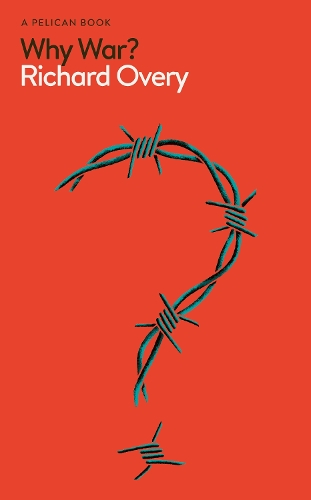
Why War
(Hardback)
Available Formats
Publishing Details
Why War
By (Author) Richard Overy
Penguin Books Ltd
Pelican
17th September 2024
27th June 2024
United Kingdom
Classifications
General
Non Fiction
Military history
International relations
Peace studies and conflict resolution
Armed conflict
Social, group or collective psychology
355.02
Physical Properties
Hardback
400
Width 145mm, Height 223mm, Spine 33mm
494g
Description
A study of what leads humans to war, from one of our great military historians There can be few more important but also more contentious issues than attempting to understand the human propensity for conflict. Our history is inextricably tangled in wave after wave of inter-human fighting from as far back as we have records. How can we make sense of what Einstein called 'the dark places of human will and feeling' Richard Overy draws on a lifetime's study of conflict to write this challenging, invaluable book. Studying every facet of war from biology to belief, psychology to security, Overy allows readers to understand the many contradictory or self-reinforcing ways in which warfare can suddenly appear a legitimate option. Repeatedly humans have foresworn war, have understood its appalling risks and have wished to create more pacific, productive societies. And yet almost inevitably circumstances emerge under which war once more seems inevitable or even desirable.
Reviews
PRAISE FOR BLOOD AND RUINS: 'Majestic and original ... Overy has written many fine books, but Blood and Ruins is his masterpiece. It puts all previous single-volume works of the conflict in the shade. -- Saul David * The Times *
Monumental... [A] vast and detailed study that is surely the finest single-volume history of World War Two. * Wall Street Journal *
This is a magnificent book that reflects the deep scholarship and humane judgment of a magisterial historian. * The Economist *
Author Bio
Richard Overy is one of Britain's most distinguished historians. His most recent book is Blood and Ruins- The Great Imperial War, 1931-45 which was a New York Times bestseller and winner of the Duke of Wellington Medal for Military History. His other major works include The Dictators, winner of the 2005 Wolfson Prize, The Morbid Age and The Bombing War, which was a finalist for the 2014 Cundhill Prize. He is a Fellow of the British Academy and a Member of the European Academy of Sciences and Arts.
